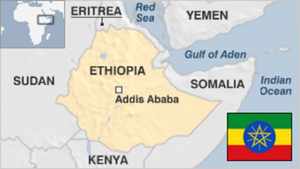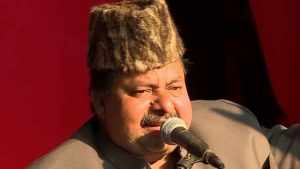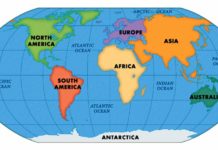 1. Prime Minister Narendra Modi to distribute e-property cards to rural people under the ownership plan
1. Prime Minister Narendra Modi to distribute e-property cards to rural people under the ownership plan
Prime Minister Narendra Modi , ownership plan to lease their property to rural people under the E-property card will be delivered. In this program being organized in a virtual manner, more than four lakh people will be given e-property cards of their property and thus the implementation of the ownership scheme will start across the country. Prime Minister’s National Panchayati Raj Day on 24 AprilRashtriya Panchayat Award for the year 2021. Prizes ranging from five to fifty lakh rupees to be awarded as prizes will be transferred directly to the bank accounts of the winning panchayats. Union Agriculture Minister Narendra Singh Tomar will also attend the event. Prime Minister inaugurates ownership plan of surveying and mapping of villages through technology, 24 April last yearWas done as a scheme of the central region with the objective of making rural people socially and economically strong and self-reliant. The e-property cards offered under this scheme can be used by rural people to take loans as financial assets and to take other financial benefits. The plan was implemented in 2020-21 as a test in Maharashtra, Karnataka, Haryana, Uttarakhand, Uttar Pradesh, Madhya Pradesh and a few selected villages in Punjab and Rajasthan.
- The central government will provide free food grains to the poor in May and June under the Pradhan Mantri Garib Kalyan Anna Yojana

The center will provide free food grains to the poor for the next two months under the Pradhan Mantri Garib Kalyan Anna Yojana . Under this scheme five kilograms of food grains will be given to each person per month in May and June this year. The government has decided to distribute free food grains to about eighty crore beneficiaries identified under the National Food Security Act. The Ministry of Consumer Affairs has said that under the National Food Security Act, both Antyodaya Anna Yojana and priority families will be benefited. The government also distributed food grains to the people last year during the Kovid-19 epidemic.
- Exports of processed food products in India rise by more than 26 percent

Despite the challenges posed by the Kovid epidemic, the export of processed food products in India has registered a growth of over 26 percent during April to February of the last financial year . The Ministry of Commerce and Industry said that the total value of export of processed products during this period was about 43 thousand 798 crores . Major processed food products exported from India include pulses, vegetables, fruits and juices, groundnuts, ground grains, alcoholic beverages and edible oils.
- Prime Minister announced the launch of the India-US Climate and Clean Energy Agenda 2030 Partnership

Prime Minister Narendra Modi has announced the US-India partnership on clean energy and climate change . Addressing the Lord’s Climate Summit through video conference, Mr. Modi announced the launch of the India-US Climate and Clean Energy Agenda 2030 Partnership. This partnership can become a model for accessible, green finance i.e. investment on environmental improvement and developing countries’ access to clean technology. Shri Modi said that together we will promote investment and clean technology and increase green environmental cooperation. Emphasizing concrete action to meet the challenge of climate change, he said that this action should take place globally, on a large scale and at a fast pace. They said thatIndia’s goal of achieving 450 GW of renewable energy by 2030 shows our commitment. The US announced that it had set an ambitious target of reducing greenhouse gas emissions by 50% to 52% in 2030 compared to 2005 levels . This is double the 2015 target set by Barack Obama. Obama’s successor, Donald Trump, withdrew from the Paris Agreement. According to the US, these steps will help the country achieve net zero emissions by 2050. The US recently rejoined the Paris Agreement.
- IIT Kharagpur successfully commercialized COVIRAP, a diagnostic technique for detection of COVID-19 virus.

IIT Kharagpur Healthcare Products COVIRAPHas been successfully commercialized. COVIRAP is a diagnostic technique for the detection of COVID-19 virus. The technique is also capable of testing for influenza, dengue, malaria, tuberculosis and Japanese encephalitis. Also, the technology can be used to test for other vector borne diseases. The COVIRAP-based device has a test cost of Rs 500. This device will reduce the need for real-time PCR machines and thermal cyclers. COVIRAP is a cube-shaped portable test instrument that is capable of producing results in one hour. This will help in increasing the screening of COVID-19 in rural and peripheral areas. COVIRAP based machines can be developed at a cost of less than Rs 10,000. COVIRAP tests COVID-19 using a swab sample. This does not require a separate facility for RNA extraction.
- The World Economic Forum released the Global Energy Transition Index

The World Economic Forum recently released the Global Energy Transition Index . The index Accenture was designed in collaboration with (Accenture). The 10 countries topping this index were from the northern and western parts of Europe. In Sweden the first place, it is followed by Norway and Denmark. India ranks 87th in this indexIs in place. China ranks 68th in the index. About 92 out of 115 countries outperformed their overall score. This shows a positive direction in the global energy transition. According to this report, India is bringing energy changes through subsidy reforms. On the other hand, China is focusing on expanding renovation through investment and infrastructure. India and China together account for one-third of global energy demand. The Global Energy Transition Index assesses 115 countries based on their performance in three dimensions, such as environmental sustainability, economic development, energy security.
- An initiative called ‘Global Youth Mobilization’ was launched for the youth

Recently , an initiative called ‘ Global Youth Mobilization ‘ has been launched for the youth in the communities affected by the Corona epidemic . The ‘Global Youth Summit’ (GYS), to be organized through April 23-25, 2021 through virtual means, is an initial effort to mobilize and unite the youth. The goal of the ‘Global Youth Summit’ is to provide a platform for youth in the age group of 14-30 to engage with their peers, representatives and policy makers with a new perspective and skills. This initiative was supported by the world’s six largest youth organizations , as well as the World Health Organization (WHO) and the United Nations.(UN) is supported by the Foundation. ‘Global Youth Mobilization’, supported by ‘Kovid-19 Solidarity Response Fund’, will support and expand solutions and programs led by youth around the world. Nation Foundation ‘and’ Swiss Philanthropy Foundation ‘.
- India to register 10.22% growth in FY22: SBI report

State Bank of India has recently revised India’s growth rate to 10.4% for FY 2021-22 . Earlier, the bank had predicted a growth rate of 11%. SBI has curbed the country’s growth rate due to the growing crisis of COVID-19. This report states that the Indian government should increase vaccination efforts rather than lockdown. According to this report, the cost of vaccinating half the population in 13 major states is 1% of the country’s GDP or the state’s health budget. 15% to 20%. Based on these estimates, it is estimated that the center will bear the cost of vaccinating half the population.
- World Bank will provide Bangladesh with $ 250 million for COVID-19 pandemic recovery and jobs

The Bangladesh government signed an agreement with the World Bank to finance $ 250 million , which would help create more jobs. It will also help in the rapid recovery from the COVID-19 epidemic. It was the third and final in a series of credits totaling US $ 750 million under the Programmatic Jobs Development Policy, based on the creation of inclusive and quality jobs, supporting the government in response to the COVID-19 crisis. Has helped the government secure 5 million jobs, and helped firms to continue to pay their workers’ salaries. It also supported migrant workers who had to return to Bangladesh due to the epidemic.
- S&P: India’s growth rate to be 11% in 2021

S&P Global Ratings recently said that the Indian economy will grow at 11% in 2021-22 . Earlier, S&P predicted that India would grow at a rate of 10%. Over the next few years, India will grow at a rate of 1% to 6.4%. The credit situation for Asia-Pacific banks has improved. With countries implementing vaccination programs, economies are recovering and in the Asian region Regional financial conditions are supportive. The crisis has left a deep negative impact on lenders. It will take years for banks to recover from the COVID-19 crisis. Most economic activity stagnated during April – June of 2020. This drastically narrowed the country’s GDP by 9%. The current rating of S&P on India is BBB.
- Australia cancels deal on China’s Belt and Road Initiative

The Australian Government recently announced that it has taken the Belt and Road initiative in the national interest(Belt and Road initiative) has canceled the deals. The State Government of Victoria had signed two agreements with China. In 2018, an agreement was signed to promote infrastructure development initiatives in the state. The second agreement was signed in 2019 aimed at bringing Chinese investment into the state. Both these agreements were signed under the Belt and Road Initiative of China. The Australian Government has recently rescinded both of these agreements. According to Australia, the agreements were not in line with the government’s foreign policy. In December 2020, The Australian Government introduced the Australia Foreign Relations (State and Territory Arrangement) Act. This law allows the Australian Government to cancel any agreement signed between a foreign country and state authorities. This will be done when the national interest is threatened by the actions of the agreement. The law gives the foreign minister the authority to cancel any such foreign agreement.
- International Energy Agency Releases Global Energy Review Report

The International Energy Agency has recently released a Global Energy Review report. According to this report, carbon dioxide emissions in India are 1.4% higher than the levels recorded in 2019. In India, coal-fired power generation will be three times more than the increase in power generation from renewable sources. Demand for coal is expected to grow by 9%. India has committed to reduce the emission intensity of its GDP from 33% to 35% under the Paris Agreement . Currently, India’s carbon dioxide emissions are 60% below the global averageAnd is equivalent to emissions in the European Union, which is 35 gigatons. Worldwide carbon dioxide emissions will increase by 5 billion tonnes in 2021. China will lead more than 80% of coal demand in 2021. On the other hand, China will also lead the market for electricity generation from renewables. Demand for coal will also increase in the US and European countries. However, it will remain below the pre-crisis level. Demand for coal and gas is expected to go above 2019 levels. However, oil demand will remain below its 2019 highs. This is because the aviation sector is under much higher pressure due to the COVID-19 crisis. Renewable energy will provide 30% of electricity. Power generation from the wind will increase by 275 tetra watts. This is an increase of 17%. Solar PV will increase by 145 tetra watts, which is an 18% increase over 2020.
- Reserve Bank of India allowed banks to pay dividends on equity shares

The Reserve Bank of India has allowed banks to pay dividends on equity shares . In view of the second wave of Kovid, the Reserve Bank has asked banks to limit the dividend to 50 per cent as per rules to raise capital and conserve it. The Reserve Bank has clarified that after dividend payment, all banks will ensure to meet the applicable minimum regulatory capital requirements. The central bank had last year banned banks from paying dividends after the outbreak of the Kovid epidemic. Co-operative banks are allowed to pay dividends on equity shares out of the profits of the financial year ended 31 March 2021.
- Indian Women Boxers 7 Gold Medals in World Youth Boxing

Kiels of Poland in World Youth Boxing Championship in Indian women boxers 7 gold medals has made history by winning. All women boxers reached the finals of the championship – Geetika (48 kg), Naorem Babirojisana Chanu (51 kg), Poonam (57 kg), Vinca (60 kg), Arundhati Chaudhary (69 kg), T Sanamacha Chanu (75 kg) and Alfiya Pathan (81 kg) won the gold and won the gold medal. A total of 8 Indians entered the finals. Seven of them were women. All women finalists topped.
- 23 April: English Language Day

23 April is celebrated every year as English Language Day . April 23 was chosen as English Language Day to commemorate both William Shakespeare’s date of birth and date of death. The English Language Day was the result of a 2010 initiative of the Public Information Department, which sought to establish Language Day for each of the organization’s 6 languages. The United Nations’ Language Days aims to promote multilingualism and cultural diversity, as well as the equal use of all six official languages throughout the organization. As part of the United Nations Language Days initiative, UN celebrates six different days (Arabic: 18 December, Chinese: 20 April, English: 23 April, French: 20 March, Russian: 6 June, Spanish: 23 April), the organization Is dedicated to one of the six official languages.
- April 23: World Book Day

‘ World Book Day ‘ ie ‘ World Book and Copyright Day ‘ is organized on 23 April every year across the globe . World Book Day is mainly organized to read books and to highlight the importance of publication and copyright and to promote them. It is to be noted that in the year 1995During the UNESCO conference held in Paris, it was decided to organize 23 April as ‘World Book and Copyright Day’ (World Book Day). The date of 23 April is also important in the sense that many famous writers of the world were either born or died on this day. For example, William Shakespeare, Josep Pla and Inca Garcilaso de la Vega breathed their last on 23 April, while on the same day Manuel Mejia Vallejo, Halador Laxness and Maurice Drune were born. UNESCO organizes events on this occasion every year. Copyright is an important issue in the book world, so this issue is also emphasized on the occasion of World Book Day. On this occasion, Tbilisi, the capital of Georgia, has been selected as the ‘ World Book Capital ‘ for the year 2020 .
- State of emergency in Ethiopia

Ethiopia (Ethiopia) recently Amahara southern (Amhara) region declared a state of emergency that went against violence because different parts. Violence has increased in Ethiopia and insecurity is also rising outside Ethiopia’s war-ravaged Tigray region ahead of national elections scheduled for June. Violence erupted in the area after an Oromo Imam was shot and killed outside a mosque. This increased conflict between Oromo civilians and Amhara security forces. The Amhara group is dominated by the Amhara region. On the other hand, there is a large population of Oromo people in the Oromo Special Zone.
- Famous qawwali singer Farid Sabri passed away

Famous Sabri Brothers duo Qawwali singer Farid Sabri has passed away. The Sabri Brothers (Farid Sabri and Amin Sabri) are known for their evergreen songs, such as ‘dar na ho jaye kahi dar na na jaye’ and ‘Ek meet jaroori hai sanam’. These brothers and their father Saeed Sabri performed qawwali in many events organized in India and abroad.


















